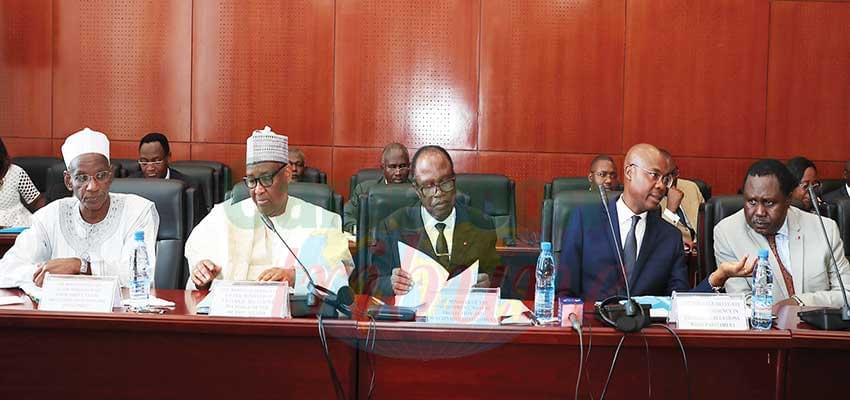Montreal Protocol on the Ozone Layer : Minister Advances Need For Ratification
- Par Eulalia AMABO
- 27 juin 2019 12:34
- 0 Likes

Given the guidelines of the agreement, substances that deplete the ozone layer will be greatly reduced therefore minimizing their hazardous effects to the environment.
In order to enable Cameroon actively participate in the global action to reduce the production and expansion of hydrofluorocarbons in the atmosphere, the Minister of Environment, Protection of Nature and Sustainable Development, Hele Pierre on June 24, 2019 before the Foreign Affairs Committee of the Senate assisted by the Minister Delegate to the Minister of External Relations in charge of Cooperation with the Islamic World, Adoum Gargoum defended a bill on the amendment of the Montreal Protocol on substances that deplete the ozone layer. Minister Hele Pierre defended bill No 122/PJL/SEN/2L before the Committee members in the presence of the Minister Delegate to the Presidency in charge of Relations with Assemblies, Bolvine Wakata.
Going by the defence reasons of the Minister, its ratification will greatly reduce the risks of skin cancer, eye and lung cancer; ensure the careful and rational use of resources while enabling Cameroon benefit from financial assistance and technological transfer from the Multilateral Fund for capacity building. Minister Hele Pierre outlined substances threatened by the ozone layer, which the ratification of the protocol will facilitate their reducing, hence the protection of human health and the environment. “Among these substances, we can mention, inter alia CFCs and HCFCs, very stable and flammable used as refrigerants in cooling and air conditioning systems. Methyl bromides, less stable and non-flammable used in fumigation to control pests. Halons, which are non-flammable and used as extinguishing gas and fire protection, and TCC (carbon tetrachloride), a type of solvent used to remove dyes and other ...
Cet article complet est réservé aux abonnés
Déjà abonné ? Identifiez-vous >
Accédez en illimité à Cameroon Tribune Digital à partir de 26250 FCFA
Je M'abonne1 minute suffit pour vous abonner à Cameroon Tribune Digital !
- Votre numéro spécial cameroon-tribune en version numérique
- Des encarts
- Des appels d'offres exclusives
- D'avant-première (accès 24h avant la publication)
- Des éditions consultables sur tous supports (smartphone, tablettes, PC)














Commentaires